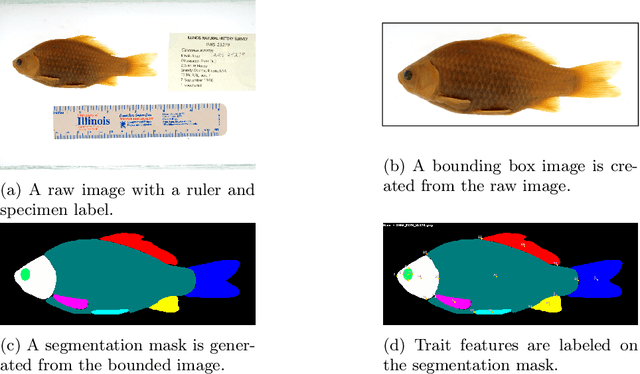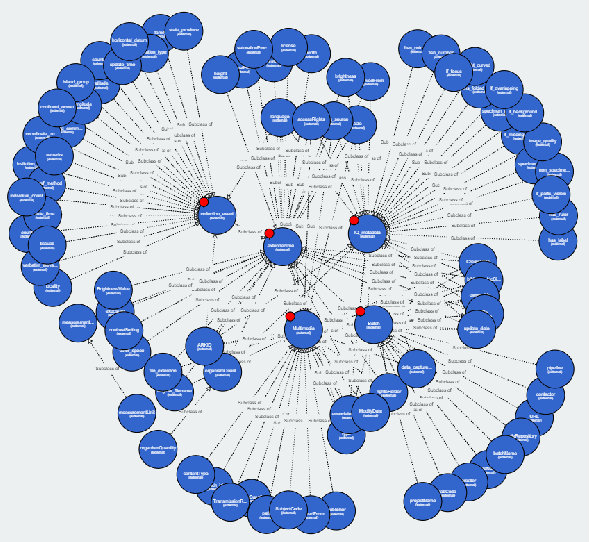Xiaojun Wang
Robust Indoor Localization in Dynamic Environments: A Multi-source Unsupervised Domain Adaptation Framework
Feb 11, 2025Abstract:Fingerprint localization has gained significant attention due to its cost-effective deployment, low complexity, and high efficacy. However, traditional methods, while effective for static data, often struggle in dynamic environments where data distributions and feature spaces evolve-a common occurrence in real-world scenarios. To address the challenges of robustness and adaptability in fingerprint localization for dynamic indoor environments, this paper proposes DF-Loc, an end-to-end dynamic fingerprint localization system based on multi-source unsupervised domain adaptation (MUDA). DF-Loc leverages historical data from multiple time scales to facilitate knowledge transfer in specific feature spaces, thereby enhancing generalization capabilities in the target domain and reducing reliance on labeled data. Specifically, the system incorporates a Quality Control (QC) module for CSI data preprocessing and employs image processing techniques for CSI fingerprint feature reconstruction. Additionally, a multi-scale attention-based feature fusion backbone network is designed to extract multi-level transferable fingerprint features. Finally, a dual-stage alignment model aligns the distributions of multiple source-target domain pairs, improving regression characteristics in the target domain. Extensive experiments conducted in office and classroom environments demonstrate that DF-Loc outperforms comparative methods in terms of both localization accuracy and robustness. With 60% of reference points used for training, DF-Loc achieves average localization errors of 0.79m and 3.72m in "same-test" scenarios, and 0.94m and 4.39m in "different-test" scenarios, respectively. This work pioneers an end-to-end multi-source transfer learning approach for fingerprint localization, providing valuable insights for future research in dynamic environments.
Fish-Vista: A Multi-Purpose Dataset for Understanding & Identification of Traits from Images
Jul 10, 2024



Abstract:Fishes are integral to both ecological systems and economic sectors, and studying fish traits is crucial for understanding biodiversity patterns and macro-evolution trends. To enable the analysis of visual traits from fish images, we introduce the Fish-Visual Trait Analysis (Fish-Vista) dataset - a large, annotated collection of about 60K fish images spanning 1900 different species, supporting several challenging and biologically relevant tasks including species classification, trait identification, and trait segmentation. These images have been curated through a sophisticated data processing pipeline applied to a cumulative set of images obtained from various museum collections. Fish-Vista provides fine-grained labels of various visual traits present in each image. It also offers pixel-level annotations of 9 different traits for 2427 fish images, facilitating additional trait segmentation and localization tasks. The ultimate goal of Fish-Vista is to provide a clean, carefully curated, high-resolution dataset that can serve as a foundation for accelerating biological discoveries using advances in AI. Finally, we provide a comprehensive analysis of state-of-the-art deep learning techniques on Fish-Vista.
Dynamic Indoor Fingerprinting Localization based on Few-Shot Meta-Learning with CSI Images
Jan 11, 2024Abstract:While fingerprinting localization is favored for its effectiveness, it is hindered by high data acquisition costs and the inaccuracy of static database-based estimates. Addressing these issues, this letter presents an innovative indoor localization method using a data-efficient meta-learning algorithm. This approach, grounded in the ``Learning to Learn'' paradigm of meta-learning, utilizes historical localization tasks to improve adaptability and learning efficiency in dynamic indoor environments. We introduce a task-weighted loss to enhance knowledge transfer within this framework. Our comprehensive experiments confirm the method's robustness and superiority over current benchmarks, achieving a notable 23.13\% average gain in Mean Euclidean Distance, particularly effective in scenarios with limited CSI data.
Enhancing Feature Extraction for Indoor Fingerprint Localization Using Diversified Data
Jun 30, 2023Abstract:Given the rapid advancements in wireless communication and terminal devices, high-speed and convenient WiFi has permeated various aspects of people's lives, and attention has been drawn to the location services that WiFi can provide. Fingerprint-based methods, as an excellent approach for localization, have gradually become a hot research topic. However, in practical localization, fingerprint features of traditional methods suffer from low reliability and lacking robustness in complex indoor environments. To overcome these limitations, this paper proposes a innovative feature extraction-enhanced intelligent localization scheme named Secci, based on diversified channel state information (CSI). By modifying the device driver, diversified CSI data are extracted and transformed into RGB CSI images, which serve as input to a deep convolutional neural network (DCNN) with SE attention mechanism-assisted training in the offline stage. Employing a greedy probabilistic approach, rapid prediction of the estimated location is performed in the online stage using test RGB CSI images. The Secci system is implemented using off-the-shelf WiFi devices, and comprehensive experiments are carried out in two representative indoor environments to showcase the superior performance of Secci compared to four existing algorithms.
Toward a Flexible Metadata Pipeline for Fish Specimen Images
Nov 18, 2022



Abstract:Flexible metadata pipelines are crucial for supporting the FAIR data principles. Despite this need, researchers seldom report their approaches for identifying metadata standards and protocols that support optimal flexibility. This paper reports on an initiative targeting the development of a flexible metadata pipeline for a collection containing over 300,000 digital fish specimen images, harvested from multiple data repositories and fish collections. The images and their associated metadata are being used for AI-related scientific research involving automated species identification, segmentation and trait extraction. The paper provides contextual background, followed by the presentation of a four-phased approach involving: 1. Assessment of the Problem, 2. Investigation of Solutions, 3. Implementation, and 4. Refinement. The work is part of the NSF Harnessing the Data Revolution, Biology Guided Neural Networks (NSF/HDR-BGNN) project and the HDR Imageomics Institute. An RDF graph prototype pipeline is presented, followed by a discussion of research implications and conclusion summarizing the results.
 Add to Chrome
Add to Chrome Add to Firefox
Add to Firefox Add to Edge
Add to Edge